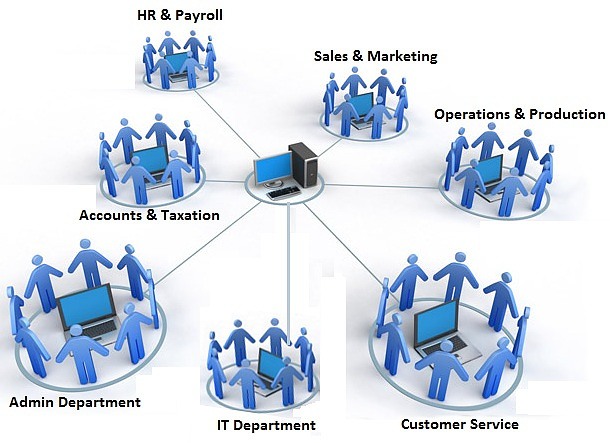Do You Know the Top Departments in Any Business
#BusinessStructure, #CompanyDepartments, #Entrepreneurship, #CareerGuide, #OrganizationalSuccess, #HR, #Finance, #Sales, #Marketing, #Operations, #Innovation, #CustomerService, #BusinessGrowth, #AdminSupport, #CorporateStrategy, #StartupGuide, #Leadership. #Top Departments
BUSINESS & ECONOMY
7/26/20253 min read


In any successful organization, from startups to global corporations, there are certain core departments that keep the business running smoothly. Each department plays a unique role in contributing to the overall mission, profitability, and sustainability of the company. Understanding these departments is essential not only for business professionals but also for students, job seekers, and entrepreneurs.
Let’s explore these departments in detail.
1. Executive & Leadership
The executive or leadership team includes top decision-makers such as the CEO, Managing Director, and Board of Directors. This department is responsible for:
Defining the company’s vision and mission.
Creating long-term strategies.
Overseeing major decisions and investments.
Aligning all departments with organizational goals.
Without strong leadership, a business lacks direction and coherence.
2. Finance & Accounts
No business can operate effectively without money, and that’s where the Finance department comes in. It handles:
Accounting and bookkeeping
Budget planning
Payroll processing
Financial reporting
Taxation and audits
Cost control and compliance
This department ensures that the business remains financially healthy and legally compliant.
3. Human Resources (HR)
People are the heart of any organization. HR manages all aspects of employee relations, including:
Recruitment and onboarding
Training and development
Performance evaluation
Employee benefits and compensation
Conflict resolution
Retention strategies
A strong HR department helps build a motivated and efficient workforce.
4. Sales & Marketing
This dynamic duo is responsible for generating revenue and building brand visibility. It includes:
Sales (retail, B2B, inside sales)
Digital marketing (SEO, social media, PPC)
Brand management
Advertising campaigns
Customer research and targeting
Sales brings in the money, while marketing brings in the audience. Together, they ensure business growth.
5. Operations
Operations is the backbone of any business—it ensures products and services are delivered efficiently. This department handles:
Production and manufacturing
Supply chain management
Inventory control
Process optimization
Delivery and logistics
Operations focuses on quality, consistency, and efficiency.
6. Information Technology (IT)
In today’s digital world, IT is critical. It manages the technical infrastructure, including:
Software and hardware
Cybersecurity
Network maintenance
Data storage and backup
IT support
Without IT, businesses can’t function in the digital economy.
7. Research & Development (R&D)
R&D is where innovation begins. Businesses that invest in R&D stay ahead of the curve. This department:
Designs new products or services
Improves existing solutions
Conducts scientific and market research
Develops prototypes
Especially crucial in pharmaceuticals, technology, and manufacturing industries.
8. Customer Service & Support
Customer retention is just as important as acquisition. The support team helps:
Answer queries and resolve complaints
Offer after-sales service
Manage customer loyalty programs
Maintain satisfaction levels
Excellent customer service improves brand trust and referrals.
9. Legal & Compliance
A business must stay within legal boundaries. The legal team handles:
Contract drafting and reviews
Regulatory compliance (like GDPR, labor laws)
Intellectual property protection
Dispute resolution
Internal audits
They ensure the company avoids legal troubles and reputational damage.
10. Procurement & Vendor Management
This team ensures the company has the materials and services it needs to operate. It involves:
Sourcing suppliers
Negotiating contracts
Managing inventory levels
Monitoring vendor performance
Controlling procurement costs
Strategic procurement boosts profitability.
11. Administration & Facilities
They might be behind the scenes, but the admin team keeps things running smoothly:
Office management and supplies
Facility maintenance
Travel and event coordination
Security and workplace safety
They support all departments to work efficiently.
12. Public Relations & Corporate Communications
PR builds the company’s image, both inside and outside. Responsibilities include:
Media relations and press releases
Internal newsletters and announcements
Crisis communication
Event and sponsorship management
Social responsibility initiatives
Strong communication builds trust with stakeholders and employees.
Conclusion
Whether you’re launching a new startup, looking to grow your career, or simply trying to understand how businesses operate, knowing the core departments of an organization is essential. Each department has a defined role, yet all must collaborate to drive a business forward. From finance to R&D, from HR to IT, every function contributes to the ultimate goal—success.
So next time you step into an office or dream of starting your own company, remember that behind every product, service, or idea is a structured team of departments working in harmony.
Knowledge
Empowering minds with reliable educational content daily.
Newsletter Signup
© 2025 DoYouKnow. All rights reserved.
Stay Ahead of the Trends – Join Our Newsletter
